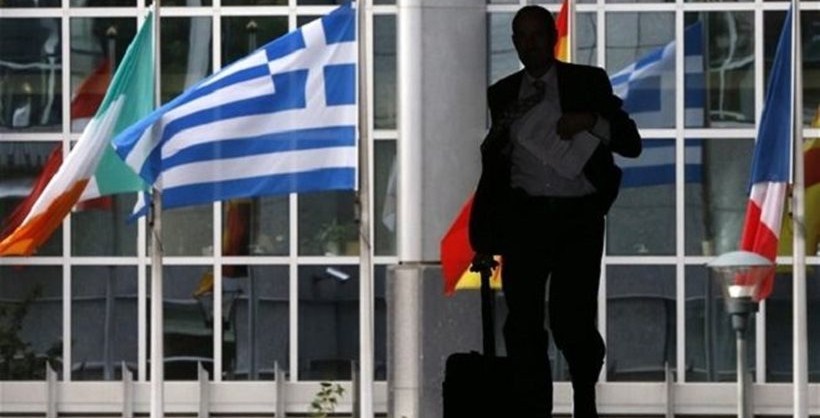The Brussels Group representing Greece’s international creditors (European Commission, European Central Bank and International Monetary Fund) is convening on Wednesday. The Greek delegation, represented by George Chouliarakis, is calling for convergence in the hope that the European Central Bank – meeting at the same time – can take progress into account and stop its policy of liquidity asphyxiation against Greece.
At the eleventh hour of the final round of negotiations, sources from Greece’s creditors expressed their bewilderment concerning statements made by Finance Minister Yanis Varoufakis on Tuesday. They were particularly astonished when they heard Varoufakis’ suggestion that he was considering taxing ATM withdrawals with a small surcharge of 0.1% as well as a 30% tax on undeclared deposits. Such reforms – though they were revoked hours after being suggested – would threaten to place more pressure on Greek banks.
Sources state that these concerns were underlined during the teleconference call held on Tuesday to discuss the specific processing of various issues prior to Wednesday’s negotiations in Brussels.
On his part, European Commission President Jean-Claude Juncker said that Varoufakis was “not helping the process” of negotiations that are currently in their most critical phase. “Mr. Varoufakis is the finance minister of a country that has to confront huge problems and he doesn’t give the feeling that he knows that,” said Juncker in an interview with MNI news agency, though after a long pause, he said that he trusted Prime Minister Alexis Tsipras. He told the reporter that Tsipras was becoming “increasingly responsible.”
Juncker said that there was still time for a staff-level agreement before June 3 – believed to be the date when the ECB will strike if the Radical Left Coalition (SYRIZA) has not succeeded in negotiations.
The Greek side prepared a 20-page proposal that may be altered by Thursday night. The goal is for an agreement with the Euroworking Group by the weekend so that the matter can then be discussed at a Eurogroup level.
The plan, however, still has some thorny issues.
Specifically:
- VAT: The Greek proposal includes three rates (7%, 14% and 22%) but there is also a possibility of two. The Greek side sees a 400-700-mln-euro yield for 2015, but creditors want 1.8 bln euros and suggest a flat VAT rate at 19% or two rates – 10% (for medicine and tourism) and 20% (everything else).
- Labor: The Golden Mean has been found through the adoption of the average model applicable in EU member states that are in accordance with the proposals of the International Labor Organization. Thorny issues are still collective bargaining of group contracts and a return to the minimum wage.
- Social Security: An end to early retirement, but there will be no zero deficit clause on auxiliary pensions until 2017. The government has pledged to discuss the modernization of the social security system in the Fall following relevant studies.
- Fiscal gap: There is a 1-bln-euro difference in estimations of the fiscal deficit due to the use of different calculation methods.
- Debt settlements: 100-installment debt settlement plan divides both sides. The Greek government believes that the measure will yield 600 million euros whereas Greece’s creditors are more reserved in their estimations.




































